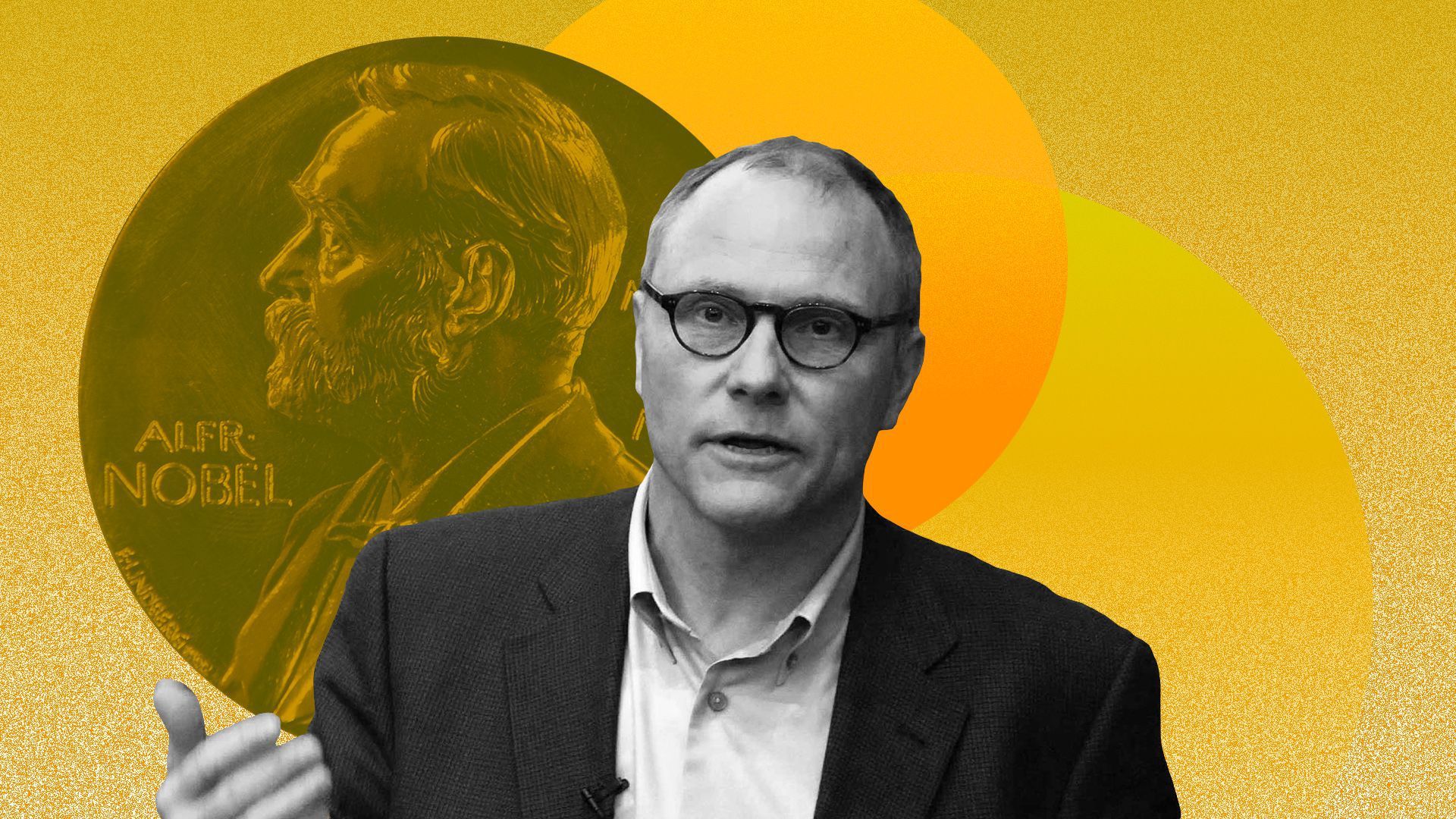Oct 14, 2021 - Economy
A Nobel for experimental economics
Add Axios as your preferred source to
see more of our stories on Google.

David Card. Photo illustration: Annelise Capossela. Photo of David Card: Jonathan Nackstrand/AFP, UC Berkeley via Getty Images
